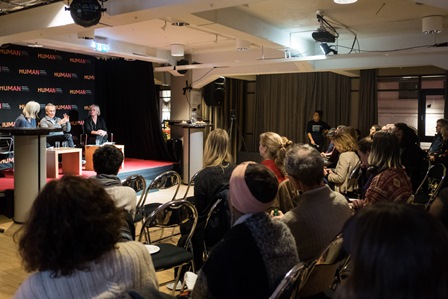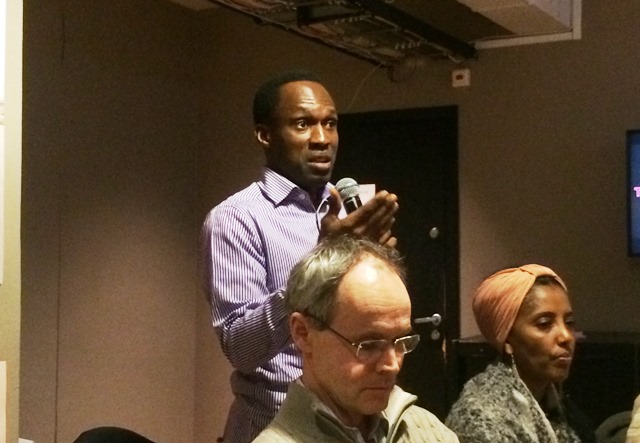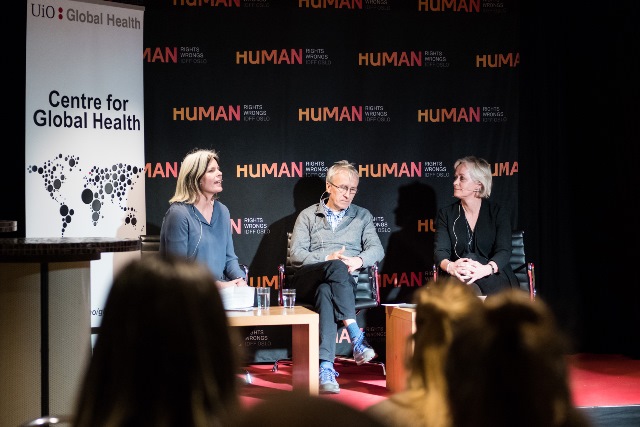Bending the Arc, a 2017 documentary film, tells a story of three young people who channelled their attention to people neglected by the health system in rural Haiti. In order to reach patients who could not reach them (or the health centre), they developed the community health model, which aimed at closing the gaps of health service provision by training specialised outreach staff to help treat diseases like tuberculosis & HIV/AIDS, consequently saving millions of lives in the developing world.
Determined to make a difference, the group worked hard to solve problems of insufficient resources, low experience and lack of human resources, not to mention the resistance from the academic ranks. Despite all, they managed to build a hospital, a community care system and to leave a legacy of passion, perseverance and partnership.

The film was screened in Oslo as part of the Human Rights Human Wrongs film festival and supported by the Centre for Global Health at the UiO. Global Health scholars, Christoph Gradmann, Anne Kveim Lie and Anne Ma Dyrhol-Riise from the University engaged in a captivating panel discussion with the film audience, encompassing global health history, the current situation and future perspectives. The full discussion has been recorded and can be viewed here:
Watch the video from the debate here
One audience member and a PhD Candidate with a passion for global health, Michael O. Atakora, gave his perspective on the film in an interview below and the challenges that face global health in the future.

Please introduce yourself and your work
I have background in Treatment and Management of Infectious Diseases, Family Planning and Health Systems Analysis. Before I started my PhD programme, I was working as a Public Health Physician after my Master of Science from the Umeå University, Sweden.
My PhD topic is 'The Ghana project in psychiatry - description of the services, psychiatric health care workers perception of mental disorders and diagnostic practice.' My supervisor is Professor Terje Oiesvold.
Can you reflect on the key challenges faced by the doctors and humanitarians in the film?
Certainly, the resources are always a major challenge in the developing world, although it looked like the challenge did not prevent them from their focus goal of providing universal health care. This and other challenges revealed the real individual compassion the doctors had for the community.
What perspective, in your opinion, would add to the film narrative?
As I am studying and working in mental health, in my opinion, it would be interesting to highlight the mental state of the patients, which often contributes to the worsening of their condition. This, I think, could be necessary for the viewers to understand a larger picture of how fit mentally the people are; for instance, their mental preparedness in even taking their medications and the trust of the health system, the medications and hopes of getting better.
What challenges do you think still exist and/or will become the next hurdles in Global Health?
I believe mental health poses a great current and future challenge in general, and especially among low-income countries. The challenges presented by the lack of, misuse and cost of medical technology will need to be dealt with in the near and distant future. And, lastly, but more importantly, the vast multitude of political, environmental and economic challenges that are persisting and evolving in the globalised environment affecting health, communities and our planet.
